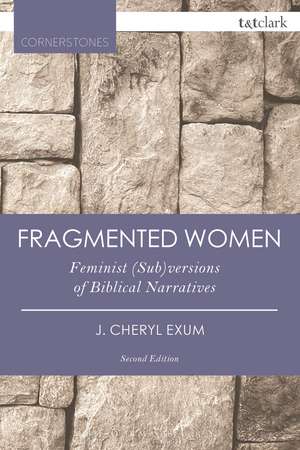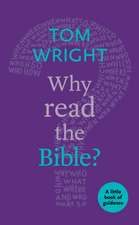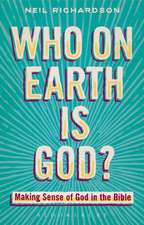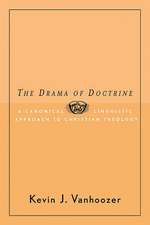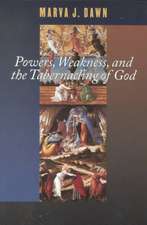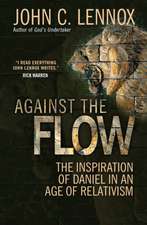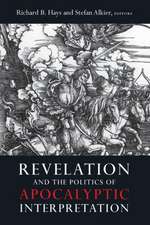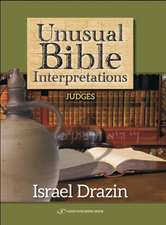Fragmented Women: Feminist (Sub)versions of Biblical Narratives: T&T Clark Cornerstones
Autor Professor J. Cheryl Exumen Limba Engleză Paperback – 16 dec 2015
Din seria T&T Clark Cornerstones
- 13%
 Preț: 182.65 lei
Preț: 182.65 lei - 11%
 Preț: 249.24 lei
Preț: 249.24 lei - 13%
 Preț: 183.54 lei
Preț: 183.54 lei -
 Preț: 125.65 lei
Preț: 125.65 lei -
 Preț: 127.81 lei
Preț: 127.81 lei - 14%
 Preț: 179.56 lei
Preț: 179.56 lei - 13%
 Preț: 181.77 lei
Preț: 181.77 lei - 13%
 Preț: 181.77 lei
Preț: 181.77 lei - 11%
 Preț: 262.87 lei
Preț: 262.87 lei - 25%
 Preț: 180.44 lei
Preț: 180.44 lei - 13%
 Preț: 181.77 lei
Preț: 181.77 lei - 12%
 Preț: 245.54 lei
Preț: 245.54 lei - 14%
 Preț: 178.65 lei
Preț: 178.65 lei - 12%
 Preț: 185.33 lei
Preț: 185.33 lei - 13%
 Preț: 181.32 lei
Preț: 181.32 lei - 13%
 Preț: 181.77 lei
Preț: 181.77 lei -
 Preț: 250.23 lei
Preț: 250.23 lei -
 Preț: 172.59 lei
Preț: 172.59 lei - 23%
 Preț: 171.39 lei
Preț: 171.39 lei - 12%
 Preț: 240.98 lei
Preț: 240.98 lei
Preț: 179.10 lei
Preț vechi: 207.26 lei
-14% Nou
Puncte Express: 269
Preț estimativ în valută:
34.27€ • 37.22$ • 28.79£
34.27€ • 37.22$ • 28.79£
Carte tipărită la comandă
Livrare economică 22 aprilie-06 mai
Preluare comenzi: 021 569.72.76
Specificații
ISBN-13: 9780567662934
ISBN-10: 0567662934
Pagini: 216
Dimensiuni: 156 x 234 x 18 mm
Greutate: 0.36 kg
Ediția:Revised
Editura: Bloomsbury Publishing
Colecția T&T Clark
Seria T&T Clark Cornerstones
Locul publicării:London, United Kingdom
ISBN-10: 0567662934
Pagini: 216
Dimensiuni: 156 x 234 x 18 mm
Greutate: 0.36 kg
Ediția:Revised
Editura: Bloomsbury Publishing
Colecția T&T Clark
Seria T&T Clark Cornerstones
Locul publicării:London, United Kingdom
Caracteristici
Close literary analysis is combined with an overview of the big themes and theoretical concepts
Notă biografică
J. Cheryl Exum is Emeritus Professor at the University of Sheffield, UK.
Cuprins
Reflective IntroductionPrefaceCh. 1: Murder They WroteCh. 2: Michal: The Whole StoryCh. 3: Samson's WomenCh. 4: The (M)other's PlaceCh. 5: Who's Afraid of the Endangered Ancestress?Ch. 6: Raped by the PenBibliographyIndex of Biblical ReferencesIndex of Authors Cited
Recenzii
This classic book in feminist literary readings of the Hebrew Bible reminds us anew that alternative interpretations teach us to resist the daily onslaught of androcentric and othering images, discourses, and politics, whether they appear in the Bible or in the world. Exum's lucid subversions of several biblical "men's stories" into "constructed versions of women's stories" raise readerly consciousness about the power of the feminist pen even in today's post-postmodern era.
Cheryl Exum is remarkable for the subtlety of her interpretations. A fine literary sensibility combines with psychoanalytic finesse and an intense feminist commitment. She is very good at playing biblical characters off against each other: Bathsheba and the Levite's concubine, Jephthah's daughter and Michal. She is concerned with the androcentric agenda of the narrators, and how it may be subverted both by the text and the resistant reader. Does the depiction of rape repeat the crime or question it? For Exum, it does both; the male reader is both complicit and absolved. These brilliant, interconnected readings are as timely now as when they were first published.
This book is a model of mature, balanced, well considered feminist criticism of the Hebrew Bible. Exum deliberately steps out of both the ideology of the text and the confines of religious exegesis, reading the biblical text as a cultural artifact, with the tools of cultural as well as traditional bible criticism. She analyses afresh fragments of biblical stories about women that are embedded in stories about men. In so doing, she affords her readers new insights and angles for understanding the texts and their influence. And by bringing the stories together, Exum manages to defragment the women, at least a little. And this is no mean achievement.
Bloomsbury is to be much commended for making professor Exum's seminal work accessible to new generations of scholars. Elegantly combining the critical and constructive tasks of feminism, Fragmented Women defies the often assumed opposition between second and third-wave. It also efficiently demonstrates how much literary readings have to gain from thoroughly questioning the surface ideology of texts. After two decades of rapid theoretical development, the impact and importance of the work appears all the more clearly. The political edge of specifically feminist criticism is not outdated and much work still remains to be done.
Cheryl Exum is remarkable for the subtlety of her interpretations. A fine literary sensibility combines with psychoanalytic finesse and an intense feminist commitment. She is very good at playing biblical characters off against each other: Bathsheba and the Levite's concubine, Jephthah's daughter and Michal. She is concerned with the androcentric agenda of the narrators, and how it may be subverted both by the text and the resistant reader. Does the depiction of rape repeat the crime or question it? For Exum, it does both; the male reader is both complicit and absolved. These brilliant, interconnected readings are as timely now as when they were first published.
This book is a model of mature, balanced, well considered feminist criticism of the Hebrew Bible. Exum deliberately steps out of both the ideology of the text and the confines of religious exegesis, reading the biblical text as a cultural artifact, with the tools of cultural as well as traditional bible criticism. She analyses afresh fragments of biblical stories about women that are embedded in stories about men. In so doing, she affords her readers new insights and angles for understanding the texts and their influence. And by bringing the stories together, Exum manages to defragment the women, at least a little. And this is no mean achievement.
Bloomsbury is to be much commended for making professor Exum's seminal work accessible to new generations of scholars. Elegantly combining the critical and constructive tasks of feminism, Fragmented Women defies the often assumed opposition between second and third-wave. It also efficiently demonstrates how much literary readings have to gain from thoroughly questioning the surface ideology of texts. After two decades of rapid theoretical development, the impact and importance of the work appears all the more clearly. The political edge of specifically feminist criticism is not outdated and much work still remains to be done.
